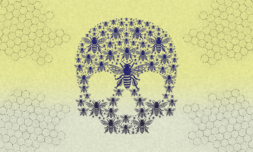New research suggests that as our planet warms, larger bees such as the bumblebee will become less prominent. Scientists now warn of potential ‘cascading’ effects on plant pollination and entire ecosystems.
Climate change is ruining summers in more ways than one, according to new research.
A cohort of US scientists, who study the knock-on effects of global warming to our natural ecosystems, have determined that populations of large bees could drastically fall as temperatures rise.
‘Not the bees!’
The bigger species among them, like bumblebees, leafcutters, and mason bees, are responsible for maintaining nature’s order of plant pollination, and the report warns that dwindling numbers could cause ‘cascading’ effects to flora and fauna on a massive scale.
Published in a journal called Proceedings of the Royal Society B, the authors outlined how bees were studied in a captive environment over eight years. Some 20,000 bees of varying type and size were released into a sub-alpine region of the Rocky Mountains.
Researchers wanted to see how bees deal with changeable weather conditions, and thus picked an area ‘particularly vulnerable to climate change,’ with warming Spring temperatures and increasingly early snow melt.
After years of careful observation and research collation, the authors found that larger-bodied bees and comb-building nesters dropped in numbers as temperatures rose. At the same time, the population of smaller soil-nesting bees grew significantly.




















